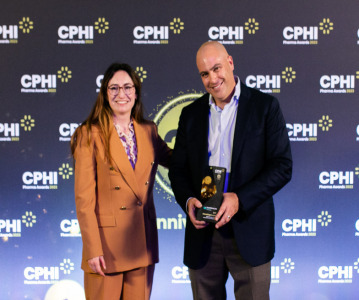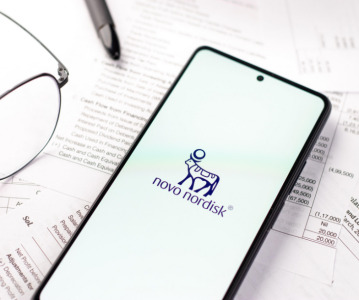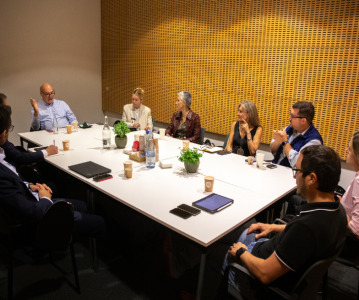Sustainability and digital adoption among trends shaping pharma packaging and drug delivery
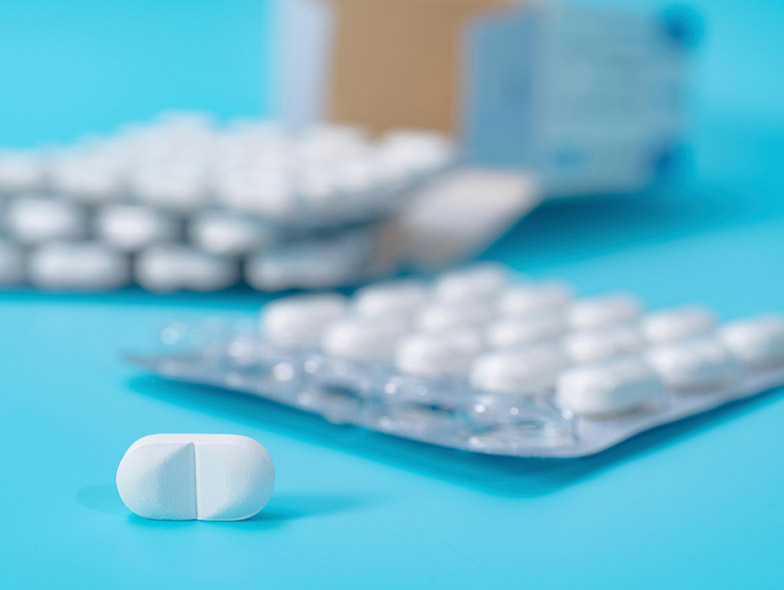
The pharma packaging and drug device industry is constantly evolving to optimise drug delivery, keep up with medical advances and ensure regulatory compliance. Trends like sustainability, cost-efficiency and digitisation continue to shape the sector, and the COVID-19 pandemic remains a challenge.
To get a sense of where things are headed in 2022, CPHI spoke with Patrick Jeukenne, VP Strategy, Business Development and Marketing at Aptar Pharma, about the challenges and opportunities facing the sector.

Register now for Pharmapack 2022, taking place online and in person.
What are some of the biggest challenges the packaging and drug delivery industry faces today?
COVID-19 has clearly been the key challenge for everyone over the past two years. As a leading supplier of critical drug-delivery components and devices to the industry, we had a responsibility to maintain continuity of supply for our customers, while at the same time ensuring our people felt safe and were supported. Another industry-wide challenge is affordability in healthcare and our ongoing focus here is on defining and developing cost-efficient drug delivery solutions. Finally, underlying everything, is the challenge of sustainability. In consumer healthcare, patients are driving rapid change with demand for products such as Proventu, our fully recyclable child-resistant cap, while in the highly regulated pharmaceutical sector our particular focus is on the development of a new generation of inhalers using propellants with significantly lower global warming potential (GWP).
Where do you see the most innovation happening in the sector?
We're seeing a lot of innovation around digital healthcare, and that’s an area where we’re making significant investments. For instance, we recently launched HeroTracker® Sense, a connected add-on for a pMDI that augments compliance and adherence. Furthermore, through acquisitions such as Voluntis, our objective is to offer an end-to-end proposition that incorporates the connected device, data management and an evidence-based clinical algorithm, which together can support clinical recommendations and improvement of drug therapies. We also see a lot of innovation happening between formulation and device to enable, for example, injectables moving from once-a-day administration to once-a-month, or through convenient nasal delivery offerings for drugs that previously could not be administered in this way.
How is Aptar Pharma driving patient centricity? Can you share examples of product solutions transforming the user experience?
Patient centricity and intuitive design for the end user is becoming extremely critical. For Aptar Pharma, the acquisition of Noble International was a key foundation in our strategy to create solutions that transform the patient experience. Part of Noble’s offering is HF+ (Human Factors Plus), a service to the pharma industry that not only validates that a product is safe and effective for regulatory agencies, but that also incorporates these learnings to help build better onboarding tools designed to improve adherence and compliance. The feedback we receive from pharma companies and from patients using those tools gives us valuable input into our continuous improvement activities. We can adjust, enhance or develop new devices based on real user data. Examples of longer standing solutions that have been developed directly around the patient include Unidose, for the nasal administration of rescue treatments in cases of opioid overdose and epilepsy seizures. We’re extremely proud that these devices are delivering drugs in life-saving situations.
Could you please share an overview of how Aptar Pharma uses digitalisation to provide healthcare solutions?
Through the collective strengths of our group, which includes Voluntis and Cohero Health, we provide pharma partners with a complete digital solution, from connected devices to digital therapeutics. This integrated approach helps address the challenge of integration, bringing together expertise in device development, data and clinical algorithms to minimise complexity and ensure interoperability. And that isn’t just for Aptar Pharma devices – we recognise that closed ecosystems will not work because of the variability in delivery devices, so platforms will be required to be open. It’s important to note this direction is about more than just giving a device connectivity – it’s about all the elements of hardware, software and data working together.
Does the fast rate of innovation in the industry pose a challenge? And what are some of the critical elements to consider for keeping up with this rapid pace?
I see a lot of innovation, but it doesn't always make it to market because we operate within a highly regulated industry. A critical element for success is having the right network of expertise, internally and via external partners, to tap into innovation and take it through to commercialisation. A robust, trusted network is critical to making innovation happen.
What are the key takeaways from the ongoing COVID-19 pandemic?
Firstly, it showed we were able to rise to the challenge of ensuring the safety of our people while diligently continuing to deliver high-quality products on time to our customers. COVID-19 also triggered an incredible acceleration in the pace of innovation. The arrival of mRNA vaccines and lipid nanoparticles would probably have taken five to 10 years previously, and they are now part of our daily life. As a business, we have learned to adapt and implement change more quickly and we have also recognized the importance of assessing our overall supply chain with a view to balancing globalisation with localisation.
What are Aptar Pharma's main priorities or areas of focus for 2022?
There are several key pillars to our strategy. Number one is always to deliver products and services that help our customers accelerate and de-risk the process of bringing a therapy to market. Digital health is very much here to stay, and we intend to continue developing that area of our offering, expanding our relationships with pharma partners. And then there is the issue of sustainability, and we have set out several product initiatives with the objective of making significant progress in that field. Of course, underpinning all those priorities is a continued focus on patient-centricity in everything we do.
What does Pharmapack Europe mean to you?
Pharmapack is a great opportunity to reconnect with our network of customers, colleagues and contacts. The past few years have shown what’s possible with digital communication, but they have also proven the value of face-to-face events and we are looking forward to reconnecting with as many people as possible this year in Paris.
How would you describe the future of Aptar Pharma in one sentence?
Built on solid device foundations, our evolving product expertise and expanded service offering is opening up new opportunities, enhanced by digital and data, so that we can better serve our customers and continue to better address the needs of patients.
Stay ahead of the game at CPHI Barcelona
The pace of change in the pharma industry is electric. That's because innovation is the lifeblood of progress. Get under the hood of the latest trends and developments at CPHI Barcelona, where you can meet experts and disruptors face to face.
Your CPHI Barcelona pass gives you access to all conference sessions, as well as the chance to connect in-person with the global pharma supply chain from 2426 October, at Fira Barcelona Gran Via. Browse the agenda and secure your pass today!
Related News
-
News Pharmapack Awards 2024 Patient-Centric Design Award Winner – Dr Ferrer BioPharma
The 2024 Pharmapack Awards celebrated the best in innovation and design for the pharmaceutical packaging and drug delivery industry on January 24, 2024. -
News Pharmapack 2024 - From the Floor
Paris once again welcomes Europe’s leading trade show in pharmaceutical packaging and drug delivery innovation. Join our content team as Pharmapack 2024 opens its doors to leading experts and innovators in pharmaceutical packaging and drug delive... -
News On Track at Pharmapack 2024 - The Track Sponsor interview: BD Pharmaceuticals
January 2024 brings both a new year and Europe’s leading packaging and drug delivery event. Bringing the world’s experts in pharmaceutical packaging together in Paris, France, Pharmapack 2024 brings exciting opportunities to learn and colla... -
News CPHI Pharma Awards 2023 – API Development and Innovation Winners: Snapdragon Chemistry, a Cambrex Company
After another year of impressive nominations for the CPHI Pharma Awards our winners were announced at CPHI Barcelona in October. In this series of interviews, we speak to the teams behind the award-winning projects, concepts, and technologies. -
News PharmaKure gains authorisation for next stage testing on Alzheimer's treatment
Clinical stage pharmaceutical company PharmaKure gains permission from UK authorities to enter into further testing for PK051 for the treatment of patients with mild cognitive impairment associated with Alzheimer's disease. -
News New Novo Nordisk AI hub for drug discovery to open in London, UK
Danish pharmaceutical giant Novo Nordisk will be opening an AI-based research facility in the heart of London to advance drug discovery operations. -
News Navigating the Future: Challenges and Opportunities in Pharma Innovation and Investment – CPHI Barcelona 2023 Roundtable Report
In this comprehensive downloadable report, hear from a range of experts in finance and investment in the pharma industry on what investment trends will be shaping the future of the industry, in Catalonia, and the wider world. -
News BioNTech to begin mRNA vaccine manufacturing in Rwanda by 2025
German biotechnology company BioNTech has stated their intentions to begin production at their mRNA vaccine factory in Rwanda by 2025, which will mark the first foreign mRNA vaccine manufacturing site on the continent of Africa.
Position your company at the heart of the global Pharma industry with a CPHI Online membership
-
Your products and solutions visible to thousands of visitors within the largest Pharma marketplace
-
Generate high-quality, engaged leads for your business, all year round
-
Promote your business as the industry’s thought-leader by hosting your reports, brochures and videos within your profile
-
Your company’s profile boosted at all participating CPHI events
-
An easy-to-use platform with a detailed dashboard showing your leads and performance
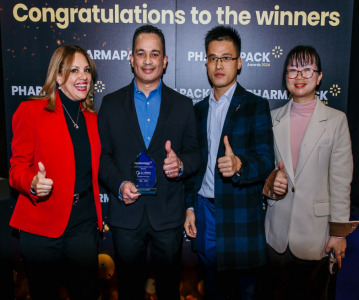

.png)
